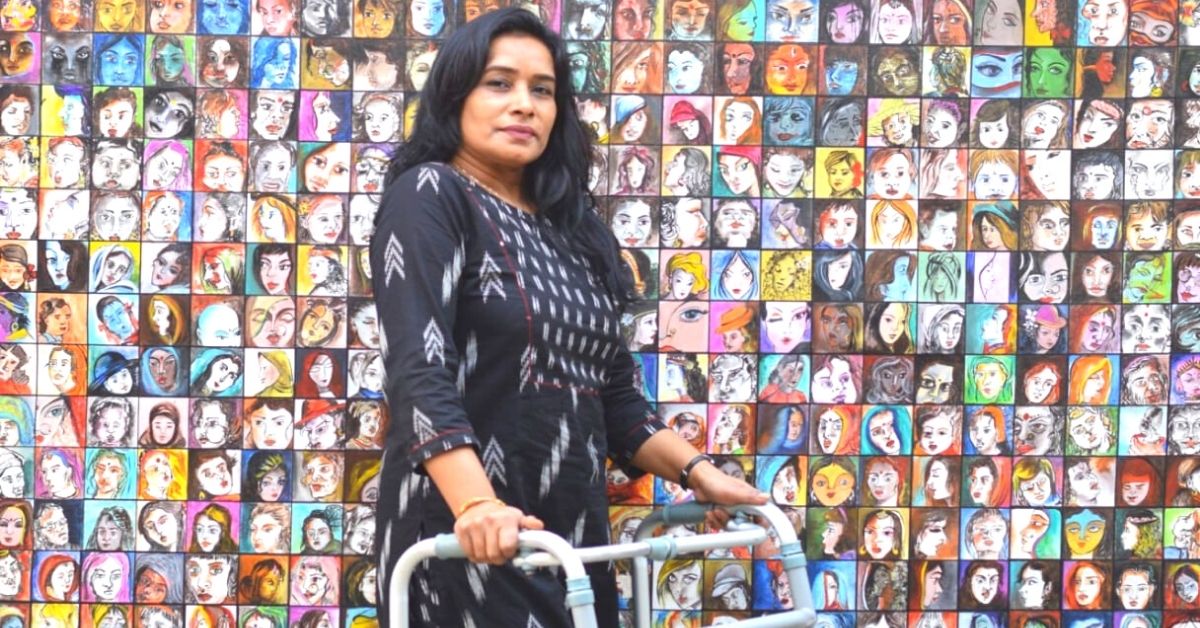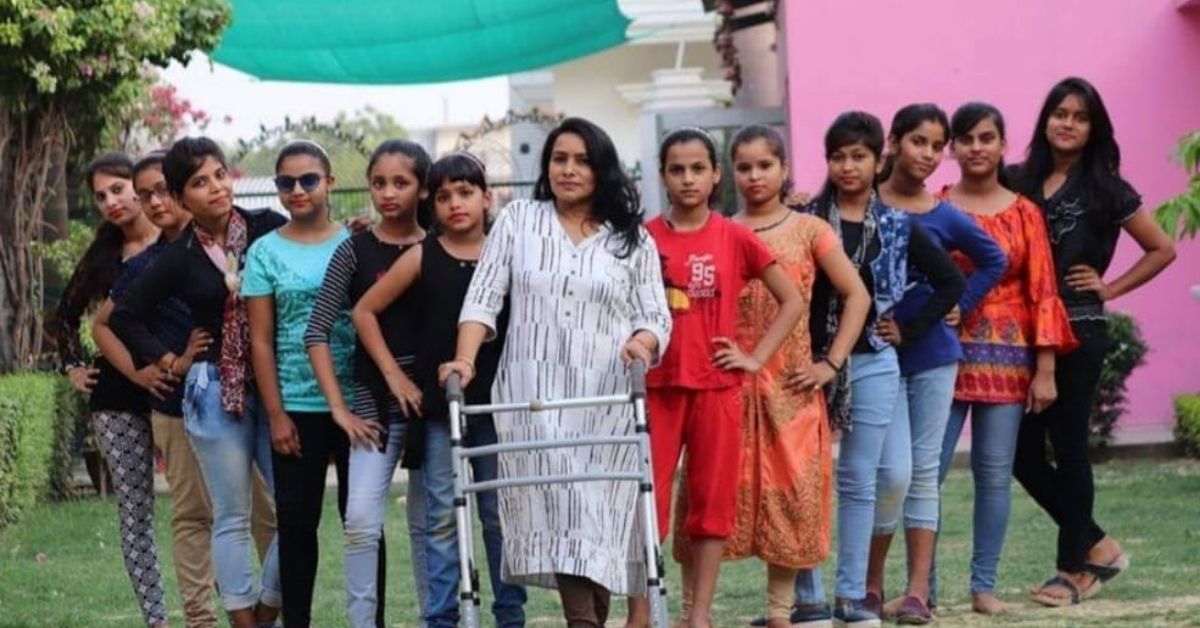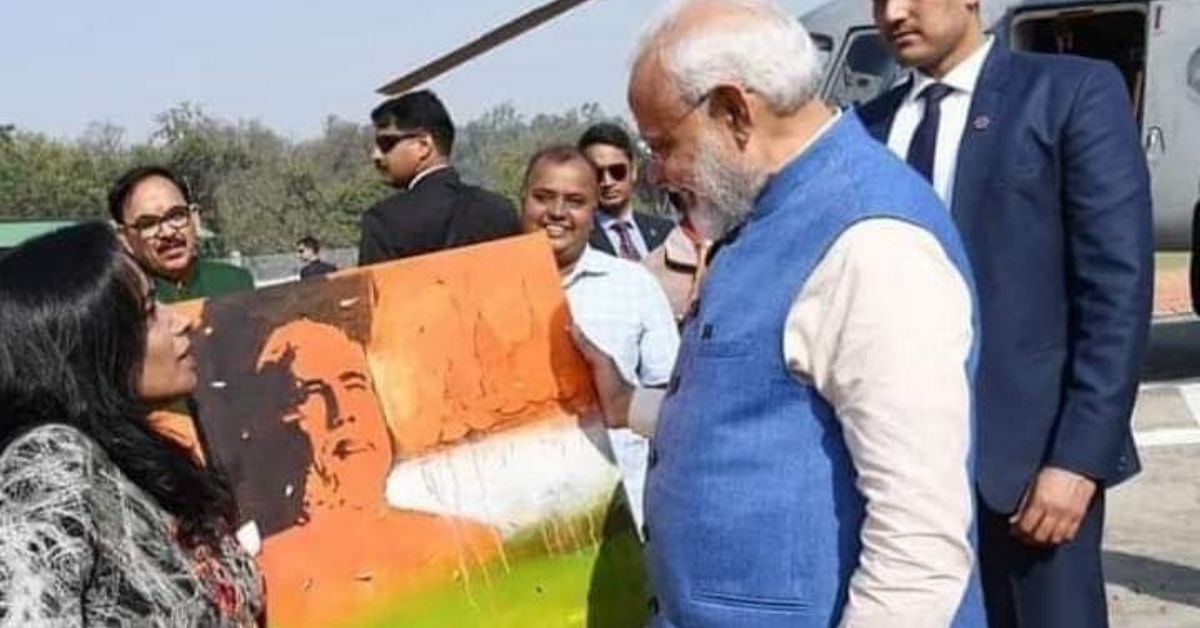Punam Rai remembers the date clearly — 2 February, 1997.
At first, the fight had seemed routine; Punam had been listening to brutal taunts from her in-laws and husband for delivering a baby girl for the last two months. This seemed like any other jibe she received. After she put her baby to sleep, she returned to trying to reason with her family, but in vain.
As things escalated, she was thrown off the third floor of the building.
When Punam opened her eyes a few days later, she was in a coma and her entire body was paralysed. All she could do was cry and blink her eyes. The doctors gave up on her and declared she won’t ever walk again.
To a certain extent, they were right. Punam was left bed-ridden for almost 15 years. But slowly, hours of physiotherapy, exercises and every possible treatment started showing signs, and her condition began improving, albeit slowly.
But things changed after her father, who she says was her biggest support, passed away in 2014.
Now 47, Punam recalls in conversation with The Better India, “My father was the strongest pillar of my life, especially after the incident. I lost my will to live knowing that I will never be able to talk to him.”
After his death, she opened Bindeshwar Rai Foundation, an NGO in his name to keep his memory alive.
A Banaras Hindu University (BHU) graduate in Painting Honours, Punam has been emancipating hundreds of children through painting and taekwondo. While she has hired taekwondo trainers for her NGO, she teaches painting herself.
‘It began with a lie’
Punam was born in Bihar’s Vaishali district to a PWD engineer and a homemaker. She grew up with two brothers, and says that there was never a time when her parents discriminated between their sons and daughter. She was encouraged to study and complete her graduation when the family moved to Varanasi due to her father’s job transfer.
A year after graduating in 1995, she was married. Within a week, she learned that her husband had not studied beyond Class 12, contrary to what his parents had told her family.
“We were told he was an engineer who had studied in Manipal University. His parents also took dowry because of this. In fact, my father gave two trucks worth of gifts to them, and it included everything — from a needle to a fridge, a washing machine to a television set. I was unaware of the dowry deal,” Punam says.
One can only imagine the pressure on the bride’s father in places like Bihar and Uttar Pradesh, where dowry still has a stronghold. Both of Punam’s brothers refused dowry when they got married but had to give in when it came to securing the girl’s future.
Despite giving dowry worth lakhs, Punam was ill-treated by her husband. Mental and physical harassment became an everyday occurance, and a month after the marriage, Punam left the house.

However, when her in-laws found out she was pregnant, they begged her to come back and her husband promised to treat her well. The situation seemed to improve but when the baby was delivered, everything fell apart.
“I was only 22 when they pushed me off the balcony. He said it would be better if I died and he could marry again. I was in a coma for six months. My spine was severely damaged and I had fractures all over my body. In between the recovery period, I was put on life support. I had no sense of urinating or defecating. I was stripped of my dignity and my dream of leading a vibrant life like a regular 20-something was snatched away because of a practice that was abolished decades ago,” says Punam.
But thanks to her family’s love, strength and support, Punam’s upper body started recovering through tedious physiotherapy sessions. Considering this as her second chance at life, she kept a positive attitude.
Naresh, her elder brother, says, “My sister is made of steel, and as a brother, the least I can do is be there for her. She has inspired so many individuals, including myself. All I want to say is that if your family member is going through a crisis, do not let them be alone.”
In 2014, when Punam lost her father, she also lost a dear friend in him. “For a few days, I felt hopeless, but my father wouldn’t have wanted that. In 2015, I formed the B R Foundation with my brother’s support. I started teaching for free and participated in various exhibitions,” Punam says.
Finding my dignity
In 2016, Punam learnt self defence and soon started teaching others with help from her NGO staff. The importance of self defence inspired her to go one step further and train students in taekwondo, a form of martial arts.
She collaborated with the Varanasi Taekwondo Association to support girls and women who cannot afford to pay for the classes.
Punam is often spotted among the students learning techniques of the martial art for the upper body. Her NGO has trained over 3,000 students, and 20 of them have gone on to participate at state and national level tournaments.

Satya Singh, secretary of VTA, tells The Better India, “We have been providing training to girls at our academy for a long time now, but a role model was missing. We got Punam on board to share her story and inspire girls, especially those from rural families. She also counsels our girls who face discrimination at home, eve teasing in public and so on. Thanks to her, the number of girls wanting to learn taekwondo has increased sharply.”
Alongside, Punam has continued painting exhibitions to meet the financial needs of the NGO. In 2017, she began doing first major painting on a six feet canvas.
Titled ‘The Phases of Faces’ and inspired by the Beti Bachao Beti Padhao campaign, the painting showcased the journey of a woman from birth to death through 648 faces. She hopes to finish it soon and give it to the Prime Minister.
An embodiment of courage and resilience, Punam has given a tough fight to her circumstances, not just to empower herself, but also inspire several others including Prime Minister Narendra Modi. In 2018, she presented the PM with his portrait.

Her daughter Priya is now 24 and currently pursuing Bachelors in Business Administration. Punam soon hopes to file a case against her former husband and his family and get justice for herself.
On what keeps her going, Punam says, “The words ‘no’ ‘can’t’ and ‘impossible’ are my biggest motivators. Whenever people discourage me from doing something, I am all the more determined to accomplish it. No person is weak; if an ant can climb a mountain we can do much more.”
She adds, “I remember stuffing cloth in my mouth to avoid shouting from all the pain in physiotherapy sessions. I took one day at a time and no matter how small the exercise, I showed up everyday. My spine may have been broken, but my spirits are very much intact.”
Edited by Divya Sethu
No comments:
Post a Comment